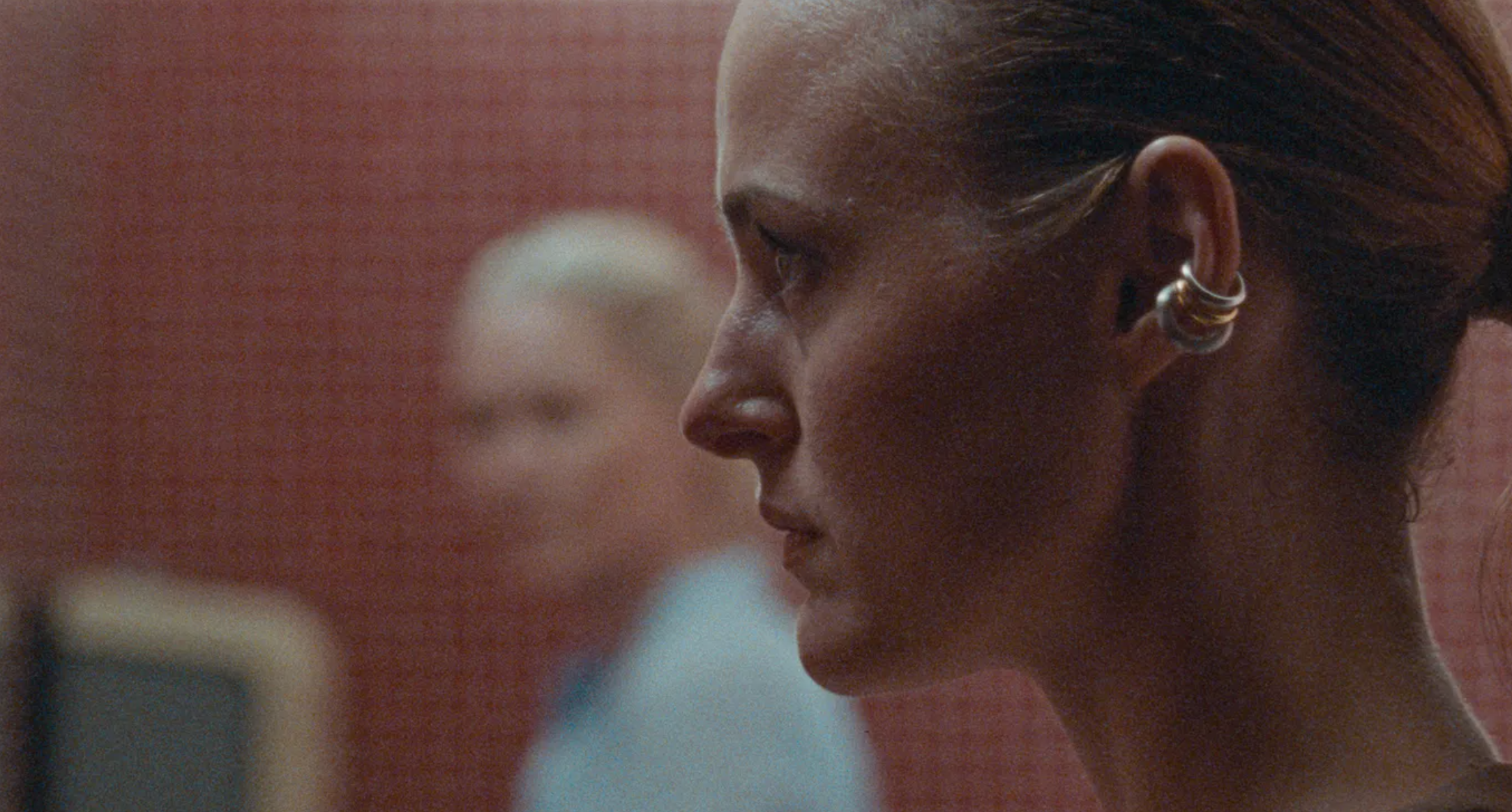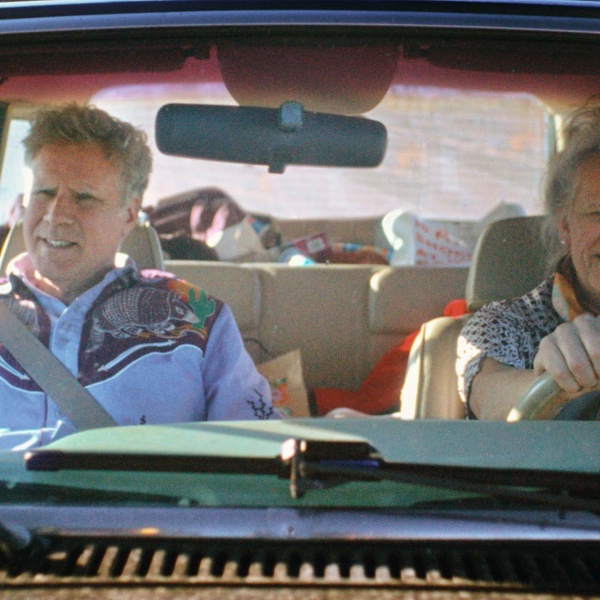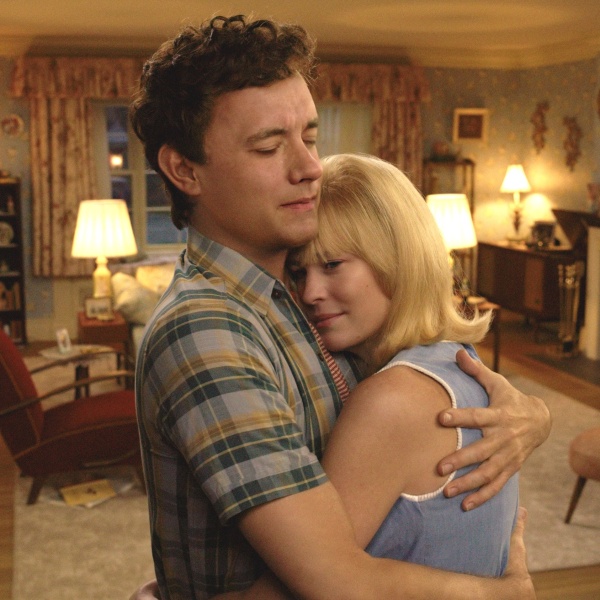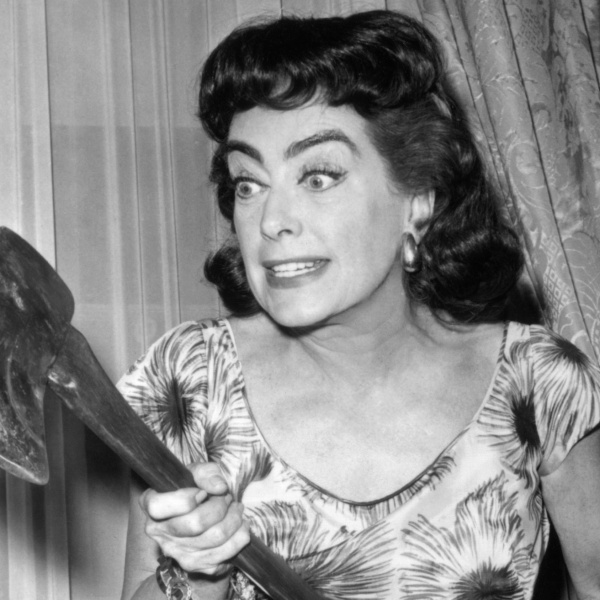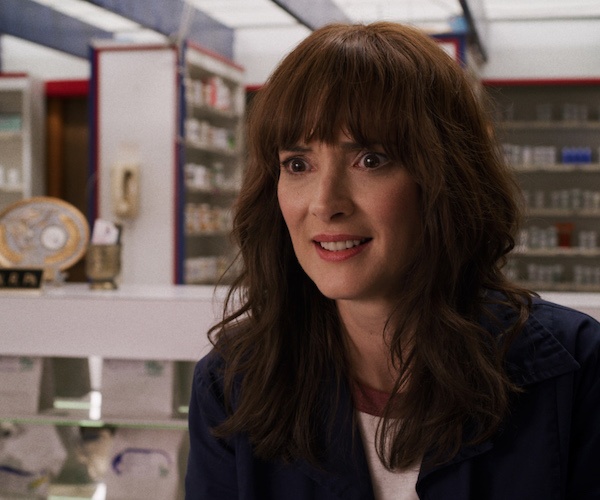Renate Reinsve, the marvelous Norwegian with just over a decade on the scene, emerged as one of the best actors of her generation through one key performance: in Joachim Trier’s “The Worst Person in the World” as a shiftless, drifting millennial without a compass. But her character, Julie, was at least always relentlessly curious, much like Reinsve herself, who won Best Actress at Cannes in 2021 for the film.
She’s back at the festival with “Armand,” a claustrophobic and surreal classroom drama from writer/director Halfdan Ullmann Tøndel, who’s also the grandson of Swedish cinema giants Liv Ullmann and Ingmar Bergman. Like his grandparents’ own medium-defining work, Ullmann Tøndel’s directorial debut is an intimate character study told in close-ups and breakdowns, as single mother Elisabeth (Reinsve) is up against another set of parents, Anders (Endre Hellestveit) and Sarah (Ellen Dorrit Petersen), about a schoolyard spat involving their sons.
For a film that unfolds mostly in real time, “Armand” flushes a hell of a lot of past resentments, secrets, and traumas into the present. Here, the sinister nature of the did-it-really-happen-or-not incident in question brings to light a gauntlet-flinging parental conflict with no détente in sight.
Reinsve has only about a dozen film credits to her name, but know that “Armand” is the best performance of her career so far, as Elisabeth careens from obstinate and defensive to Isabelle-Adjani-in-“Possession” levels of psychic meltdown. Even as Ullmann Tøndel’s two-hour movie grows a bit too winding and weird for its short film-scale conceit, Reinsve grounds the film’s more experimental, almost stagelike leanings in a constant state of heightened emotion that will make you love her even more than in “Worst Person” — and, even better, will make you scared of her.
Armand of the title is Elisabeth’s six-year-old son, never shown onscreen outside of a key final coda. In fact, neither is his elementary school classmate Jon, the son of Anders and Sarah, as Ullmann Tøndel contains the drama to a conversation between parents and the staff. That includes the slightly eccentric, stressed-out teacher Sunna (Thea Lambrechts Vaulen) and headmaster Jarle (Øystein Røger), who after summoning Elisabeth, Anders, and Sarah eventually lose control of the room as the trio’s ruinous preexisting relationship engulfs the meeting. Elisabeth is the former sister-in-law of husband and wife Anders and Sarah, previously married to Sarah’s brother who died tragically and not long ago.

Sunna and Jarle have brought them to the school — an almost Gothic, Brontëan sprawl whose macabre architecture of hallways, stairwells, and garrets grows increasingly unmappable over time — to assess measures taken over an alleged fight between the boys. What’s supposedly happened is an assault so devious, so boundary-violating that you almost can’t believe it involves two prepubescent boys. And neither can Elisabeth, who arrives at school with her hair pulled so tautly back you’d think she tied it to a doorknob and slammed the door shut, and in the stilettoed boots slapping loudly on the floor, suggestive of an imperious woman.
Ullmann Tøndel and cinematographer Pål Ulvik Rokseth, working in a cold Scandinavian color palette as dank and faded as an old, pilled Fair Isle sweater, keep the camera tight on the faces of all involved. These cinematic walls are ever closing in so tightly you breathe as deeply a sigh as the characters when it’s time for a bathroom break. That’s not to say “Armand” isn’t without humor. At times, the film tips into social comedy territory, pitting single and less fortunate parent Elisabeth against the obviously more moneyed, Nordic blonds Anders and Sarah.
At one point, Elisabeth utterly loses her shit in a too-long, nervous fit of uncontrollable, nonstop laughter that is probably the magnum opus of Reinsve’s career. Like church giggles for the mad and delirious, Elisabeth explodes in a moment that’s the Scandinavian version of “crying, screaming, throwing up,” howling, shaking, getting red-faced, drooling, eventually bursting into tears at the most absolutely inappropriate moment. However serious what may have been a children’s kind of playground game, a sort of doctor-roleplay-turned-actual-sexual-assault, Elisabeth isn’t up to the task of taking it so. At first.

Ullmann Tøndel’s screenplay is slow to uncoil the competing vines of histories twirled around this ever more toxic folie à trois between parents. How abusive was Elisabeth’s dead ex? Did Armand witness a toxic relationship that’s now caused him to act out? Why have Sarah and Anders cut her out of their lives even as their sons remain friends? By the end, all snaps into place, though not without some queasy ambiguities and the outings of evil machinations on the part of at least one of the parents.
“Armand,” in its perplexing conclusion, gets a little too lost in its own soup of ideas, staring a bit too long at the proverbial wallpaper as the camera seems to crawl from one revelation to the next, the parents and teachers bifurcated on different levels of the building, sorting out their individual grievances. There’s a daring sleight of hand that verges on filmed performance art, Elisabeth’s psychological engulfment literalized as her fellow parents (really, the PTA from hell) descend upon her. But that makes “Armand” just as much a feat of physical choreography as emotional. Ullmann Tøndel is dancing on the line of love and abuse and where it dissolves, as Elisabeth’s trauma compels her to quite literally dance herself, at one point like a broken marionette, in two imaginative from-nowhere moments that will either alienate or totally seduce you.
The main takeaway here? As much as Reinsve proved herself the ideal vessel to portray millennial angst and ennui in “The Worst Person in the World,” here she establishes herself as an ultimate portrayer of women on the edge and admiring the view before completely toppling over it. It’s thrilling to watch her free-fall from the hands of a director impressively carrying his family’s legacy with a vivid, creepy, and uncomfortably funny debut that burrows into the mind.
Grade: B+
“Armand” premiered at the 2024 Cannes Film Festival. It is currently seeking U.S. distribution.
